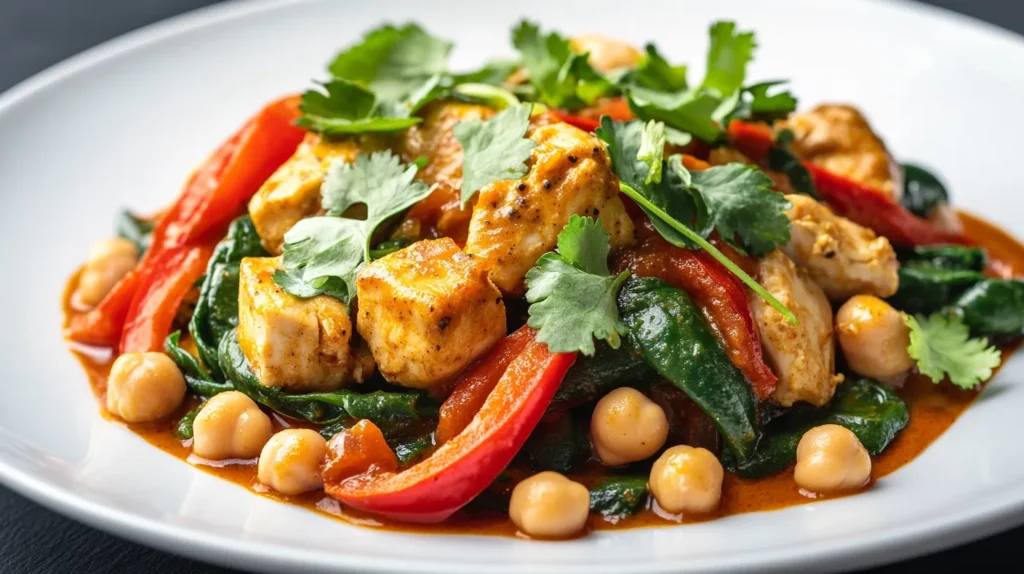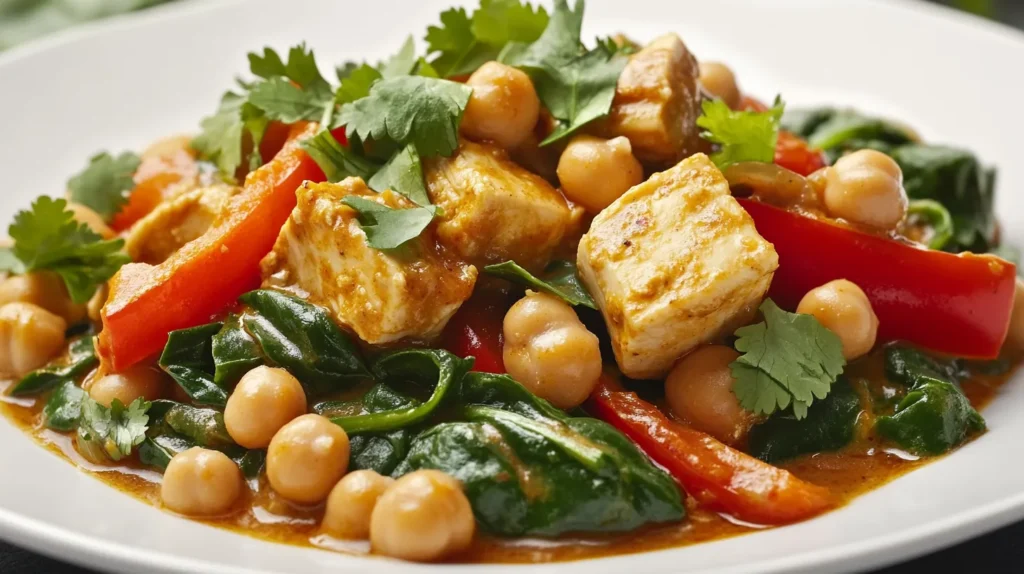Table of content
Table of content

Can Curry Be Healthy? Understanding the Nutritional Aspects
Curry is a beloved dish enjoyed worldwide, from the rich and spicy Indian curries to the mild and creamy Thai green curries. But one common question remains: Can curry be healthy? While some versions of curry are calorie-dense and indulgent, many can be adapted to fit a nutritious and balanced diet.
Why Is Curry So Popular Worldwide?
Curry’s global appeal lies in its diversity and versatility. Whether in Southeast Asia, the Caribbean, or Europe, different regions have adapted curry to suit their local tastes. From Thai coconut curries to Japanese katsu curry, this dish is a staple in many cultures.
Nutritional tip: Choosing the right ingredients can turn curry into a powerhouse meal filled with fiber, lean proteins, and anti-inflammatory spices.
The Health Benefits of Curry Ingredients
1. Powerful Spices with Medicinal Benefits
Many curry recipes include turmeric, cumin, coriander, and ginger, which have significant health benefits:
- Turmeric: Contains curcumin, known for its anti-inflammatory and antioxidant properties. Studies show curcumin can reduce the risk of chronic diseases like heart disease and cancer. (Harvard Health)
- Ginger: Supports digestion, reduces nausea, and has antibacterial properties.
- Cumin and Coriander: Aid digestion and improve metabolism.
2. Nutrient-Dense Vegetables
Curry provides an excellent way to include nutrient-packed vegetables in your diet:
- Spinach: High in iron, folate, and vitamin K.
- Broccoli: Contains fiber, vitamin C, and antioxidants.
- Sweet Potatoes: Rich in beta-carotene, which supports eye health.
- Cauliflower: A low-carb alternative to potatoes with cancer-fighting compounds.
3. Lean Protein Sources
Including lean proteins in curry helps maintain muscle health and boosts metabolism. Here are some options:
- Chicken breast: High in protein, low in fat.
- Fish (like salmon or mackerel): Rich in omega-3 fatty acids for heart health.
- Tofu and Chickpeas: Excellent plant-based proteins with fiber and essential nutrients.
4. Healthier Base Liquids
Many curry recipes use coconut milk or yogurt as a base. Here’s how to make it healthier:
- Use light coconut milk: Lower in saturated fat but still creamy.
- Swap heavy cream for Greek yogurt: Adds probiotics and protein without extra calories.
- Tomato-based curries: Offer lycopene, an antioxidant beneficial for heart health.
How to Make Your Curry Healthier
5. Reduce Unhealthy Fats and Sugars
To make curry a truly healthy dish, consider these simple modifications:
- Use less oil: Swap butter or ghee for olive oil.
- Avoid added sugars: Some store-bought curry sauces contain sugar; make your own spice blend instead.
- Use whole grains: Pair curry with brown rice, quinoa, or whole-wheat naan for extra fiber.
6. Boost Fiber and Nutrients
Adding more fiber can make your curry more filling and nutritious:
- Increase vegetable content: Double the amount of vegetables to improve the dish’s nutrient profile.
- Include legumes: Lentils and chickpeas add plant-based protein and fiber, keeping you full longer.
7. Debunking Myths About Curry
Is Curry Always High in Calories?
No! By making smart ingredient choices—like lean proteins, more vegetables, and healthy base liquids—you can create a curry that is both low in calories and highly nutritious.
Are Spices Bad for Digestion?
Not necessarily! Spices like turmeric, cumin, and ginger promote digestion and can reduce bloating. However, if you have acid reflux, opt for milder spices.

FAQs
Can Curry Help with Weight Loss?
Yes! A balanced curry with lean proteins, vegetables, and spices like turmeric and ginger can boost metabolism and support weight loss.
Is Curry Good for Heart Health?
Absolutely! Spices like turmeric and ginger have anti-inflammatory properties, and using heart-healthy fats like olive oil or light coconut milk can make curry a great choice.
What Are Some Vegan Curry Options?
There are many! Try curries with tofu, lentils, chickpeas, and vegetables. These options are nutrient-dense and packed with plant-based protein.
How Can I Make Curry Less Spicy?
To tone down the spice:
.Reduce chili peppers or cayenne.
.Add yogurt, coconut milk, or a pinch of sugar to balance flavors.
Can I Store and Freeze Curry?
Yes! Store curry in an airtight container and freeze it for up to 3 months. Reheat on the stove for the best taste.
Conclusion: Can Curry Be Healthy?
The answer is a resounding yes! By making smart ingredient choices, you can create a curry that is flavorful, nutritious, and beneficial for your health. Whether you’re aiming for weight loss, heart health, or a balanced diet, curry can be adapted to fit your goals.
Ready to try a healthy curry recipe? Check out Healthy Eating Magazine for more inspiration!
